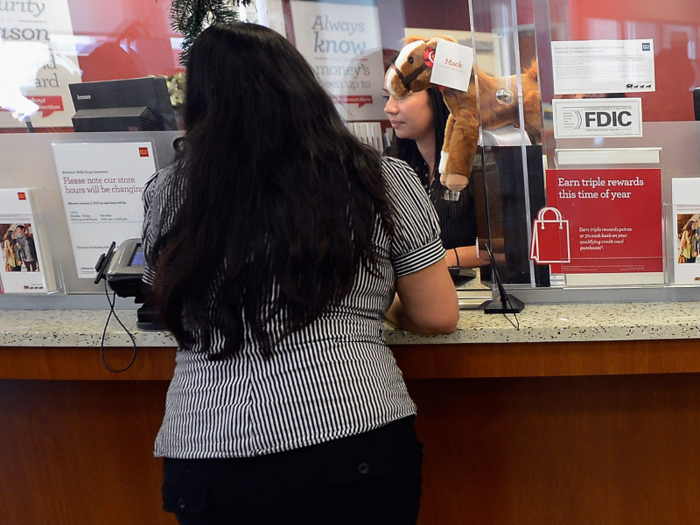
"You don't want to take all your cash and put it in investments and then not have any cash in case of an emergency," Moore said. That could force you to withdraw money from your investment account when the market is down.
Instead, set aside between three and 12 months of living expenses in an emergency fund, Moore suggested, noting that "the amount that you need depends on the stability of your income." Freelancers need a bigger cushion than someone with secure employment. Plan on having at least a couple months of emergency savings before you begin investing.

There are two primary types of costs associated with investment accounts, according to Moore: management fees, charged by your investment manager, and fees charged by the funds you invest in.
Total fees are usually in the range of 1% to 2%. If you start investing at a young age, Moore said, those fees will "add up over time."
Don't let this discourage you from investing – just understand the costs associated with your accounts and look for low-cost alternatives.

Moore has a suggestion that can save you some management fees: "There's a lot of robo-advisors where there's a very little fee or no fee at all." A robo-advisor is AI that asks you a set of questions about your goals and your tolerance for risk then uses an algorithm to recommend investments.
"For the average investor who's just getting started, a robo-advisor is great," Moore said. "I'm a financial advisor with a master's degree, and I use robo-advisors for myself."
She noted that accounts associated with robo-advisors often have lower minimums than accounts managed by humans. Some have no minimums, so you can start building your portfolio with a small monthly investment.
Nerdwallet has a list of the top robo-advisors for 2018.

"A lot of people make the mistake of choosing investments based on their performance," Moore said. While it's tempting to pick a hot stock, that stock could easily take a big tumble.
Instead, Moore suggests that you write down your investment goals, such as saving for a house, a wedding, or your retirement. Figure out how much you need and your time frame, then figure out what return on your investments will allow you to meet your goals.
Moore's suggestion: "Take the least amount of risk possible with the highest return to reach your goals."

"Behavioral finance is one of the most discussed topics in the financial planning world now," according to Moore. "Most investors operate based on fear or greed and often have overconfidence in the market or a false sense of fear."
Neither of those emotions are good investment advisors. Instead, Moore said, "Have a strategy based on your goals and practice prudence."

"You want to have different kinds of investments that do different things in different markets," Moore said. A portfolio with too much of one type of investment is susceptible to big losses when there's a downturn. A diversified portfolio protects you from the vagaries of the market. Moore noted that a robo-advisor can also help you balance your investments here.
At the end of the day, Moore said, "The important thing is that you get started and you don't allow fear of the unknown hold you back or make you procrastinate." The sooner you start investing, the sooner you start saving for your goals.
 I spent $2,000 for 7 nights in a 179-square-foot room on one of the world's largest cruise ships. Take a look inside my cabin.
I spent $2,000 for 7 nights in a 179-square-foot room on one of the world's largest cruise ships. Take a look inside my cabin. Saudi Arabia wants China to help fund its struggling $500 billion Neom megaproject. Investors may not be too excited.
Saudi Arabia wants China to help fund its struggling $500 billion Neom megaproject. Investors may not be too excited. One of the world's only 5-star airlines seems to be considering asking business-class passengers to bring their own cutlery
One of the world's only 5-star airlines seems to be considering asking business-class passengers to bring their own cutlery From terrace to table: 8 Edible plants you can grow in your home
From terrace to table: 8 Edible plants you can grow in your home
 India fourth largest military spender globally in 2023: SIPRI report
India fourth largest military spender globally in 2023: SIPRI report
 New study forecasts high chance of record-breaking heat and humidity in India in the coming months
New study forecasts high chance of record-breaking heat and humidity in India in the coming months

Copyright © 2024. Times Internet Limited. All rights reserved.For reprint rights. Times Syndication Service.